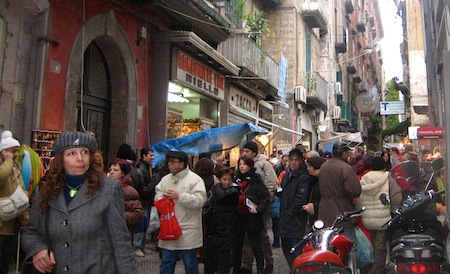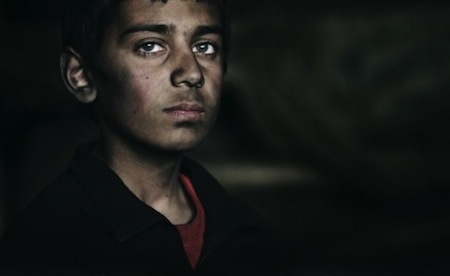Although Lombardy in Italy’s north has been called the ‘Ohio’ of Italian politics — it’s a huge prize, given that it’s the most populous and richest region, and one of the few regions currently too close to call — Sicily might well be the ‘Florida’ of Italian politics.![]()
It’s the fourth-most populous region of Italy, after Lombardy, Lazio and Campania, and with 27 seats in the Senato (Senate), it’s quite a prize. Like Lombardy, Sicily is essentially a toss-up in this weekend’s Italian general election. Voting is underway today and will continue throughout Monday.
In addition to Sicily, the election remains close in three additional southern regions, in Campania (29 seats), Puglia (20 seats) and Calabria (10 seats) — polls, as of mid-February, showed the centrosinistra (center-left) coalition headed by Pier Luigi Bersani with a very narrow lead. Taken together, the four regions boast 86 seats, representing more than half the seats Bersani will need to form a senatorial majority — a far larger prize than even Lombardy’s 49 seats.
Taken together, the four regions are Italy’s poorest, nearly one-half as wealthy as Lombardy, and plagued by widespread unemployment, even before the latest European financial crisis — the four regions receive funds from the European Regional Development Fund to stimulate economic growth and modernize their economies. Since Italian unification in 1865, southern Italy never fully integrated into the rest of Italy, and governments for the past century have tried to develop plans to bring southern Italy’s economy up to a level more commensurate with northern and central Italy.
In addition to their economic and cultural gap with the rest of Italy, the regions are hampered by their links to organized crime — the Mafia / Cosa Nostra in Sicily, the Camorra in Campania, the ‘Ndrangheta in Calabria and, to a lesser degree, Sacra Corona Unita in Puglia. That, in turn, has led to greater amounts of political corruption, cresting in 1992 with the murders of anti-mafia magistrates Giovanni Falcone and Paolo Borsellino.
Despite the south’s central role in the election, there’s not much indication that any government would necessarily do much for the south, especially in an era of budget cuts.
All four regions typically favor the center-right in Italian politics — former prime minister Silvio Berlusconi’s centrodestra (center-right) coalition won all four regions in 2008 and even in the 2006 elections, when center-left prime minister Romano Prodi returned to power, his coalition lost both Sicily and Puglia. Despite the strength of the autonomist Lega Nord (Northern League) in northern regions, such as Veneto and Lombardy, there’s not much of a counterpart in the mezzogiorno. To the extent there’s a separate ‘southernist’ autonomist movement in the southern regions, it’s split among a group of shifting regional parties that routinely aligned with the centrodestra, and that continues to be the case in this election — a patchwork of southern parties, Grande Sud (Great South), has joined Berlusconi’s coalition, making them, oddly enough, electoral allies of the Northern League.
The winner in each region is important under Italy’s election rules — in each region, the party or coalition that wins the greatest number of votes is guaranteed 55% of the senatorial seats from that region. So in a highly fragmented election like the 2013 elections, Bersani’s centrosinistra coalition could win 30% of the vote and still take 55% of the seats in a given region.
In the Italian parliament’s lower house, the winner of the national vote is guaranteed 54% of all seats, and polls show that Bersani is very likely to win the national vote. In contrast, however, the regional rules for the upper house mean that he’s far from guaranteed a majority in the Senato, and so may be forced to form a government with prime minister Mario Monti’s pro-reform centrist coalition.
In this weekend’s election, however, the left has hope that if it can sweep Lombardy and the key southern regions, it will have a shot at winning a clear senatorial majority: Continue reading The role of Italy’s south in this weekend’s election


